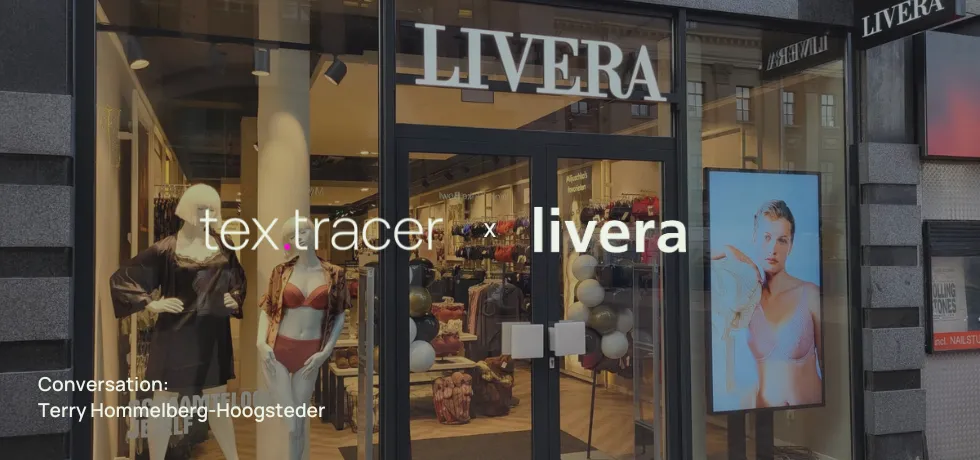We need to work together to make a necessary change!
Terry started working for Livera 20 years ago. She started working as a buyer and is currently working as a senior project manager. At Livera she is responsible for sustainability within the company.
Can you tell me about your current role and your background in the fashion industry?
As a project manager, I’m responsible for small and big projects. From hangtag design to store concepts. In the past 3 years, projects related to sustainability became more important for the company. Since the start of 2022, sustainability has become my main project. Working for Livera for many years has given me a lot of experience I can use in my current role. I have developed relationships with suppliers, I visited their factories, and I know the way of working in the Livera stores. This background is very helpful to make sustainable steps on every level of the organization.
Do you have the same relationship with the suppliers you had in your role as a buyer?
We are working with some of our suppliers for many years now. Some of them, I know for a long time. In my current role, I’m not talking about the colour or fit of our products but about the sustainability of the products.
Can you tell me more about Livera?
Livera was founded in 1969. It is a subsidiary of Groupe Chantelle, a French family-owned company. We have 10 company-owned stores in the Netherlands and we work with 90 franchise stores.
What are Livera’s sustainability goals?
We are not only focusing on the sustainability of our products, but we want to become more sustainable on every aspect of our company. There are new rules and regulations coming up which are very important for us. We are not waiting for these rules and regulations to come into place. We want to be ready. Since Guillame Kretz became General Manager at Group Chantelle we focused more and more on sustainability and circularity. It’s good to see how important this has become for the company.
The strength of Livera is that we work in a small team. We are working with a team of 40 people in the head office. This makes it easier to make responsible decisions. We share knowledge and inspire each other during our sustainable Thursday lunch every month. Next to that, we have gatherings with our Livera Green team, which involve colleagues from all departments to work on our sustainability targets. It is important that everybody is involved.
In our 5-year strategy, we look at different pillars within the organization. For every pillar, we have assigned a responsible person and targets. Each target is split into multiple short-term and long-term goals. It’s not our goal to become less polluting in the things we do, instead we take a holistic approach and want to make change from within the whole organization and everything we do.
We use tex.tracer for the social aspect of our supply chain. You can only improve when you know the people you’re working with and the partners they are working with.
How does Livera create a better fashion industry, both on social and environmental levels?
Improving the environmental aspect of our collection starts with the design process. Our designers not only source more sustainable materials, but we also improve the collection process.
What is the added value of tex.tracer to you?
We are working with a small team and we do not have the manpower to investigate our supply chain on our own. tex.tracer reduces the workload and is helping us to reach the supply chain partners further down the chain. Working with third-party verification means that our suppliers take us seriously in our journey toward more supply chain transparency. The tex.tracer platform is a one-stop shop, it is user-friendly and next to supply chain transparency, you can collect all certifications of the suppliers and upload our Delivery Manual for all our suppliers.
Do you have tips for fashion companies that are also working towards sustainability?
Don’t make assumptions. For example, your suppliers are not ready yet. We planned a meeting with all our suppliers together, which is quite exceptional. Sharing your supplier base is not what brands often do. During this meeting, we educated our suppliers on the importance of transparency and sustainability. We received a lot of positive reactions. We need to work together to make a necessary change!




